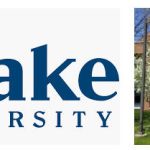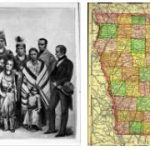The University of Iowa College of Law was founded in 1865, making it the oldest law school in continuous operation west of the Mississippi River. It was the first public law school established in Iowa and the first to admit women. The College of Law was initially located in downtown Iowa City, but moved to its current location on the University of Iowa campus in 1924. For many years, the College has been rated as one of America’s top-tier law schools and is consistently ranked among the top public law schools in the country. The College has a diverse student body with students from all 50 states and around 100 countries. It offers over 20 degree programs, including a JD program, LLM programs, dual degree programs, and joint degree programs with other departments at the University. The faculty includes renowned scholars who are leaders in their respective fields and have received awards for their research, teaching excellence, and professional service. The College also provides a variety of experiential learning opportunities for students through its clinics and externships. Students also have access to cutting-edge technology through its various research centers and institutes such as the Center for Computer-Aided Legal Instruction (CALI). Finally, graduates from University of Iowa College of Law enjoy an excellent job placement rate thanks to its strong alumni network across government agencies, private firms, corporations, nonprofits, courts, educational institutions, etc.
University of Iowa College of Law is located in the state of Iowa. As one of the leading law programs, University of Iowa College of Law has a high average LSAT score of 158-164 when recruiting new students. As a return, the median starting salary for law graduates reaches $92,500 per year. See the following table for detailed admissions information and career profiles of University of Iowa College of Law.
Admissions: University of Iowa
The University of Iowa College of Law is one of the most prestigious law schools in the nation. Admissions to the college are highly competitive and selective, with an acceptance rate of approximately 38%. The median LSAT score of accepted students is 162-164, and the median GPA is 3.6-3.8. The school also looks for a diverse class with many different backgrounds and perspectives, so they take into account other factors such as extracurricular activities, community service or work experience when making admissions decisions. The college also offers a variety of scholarships to help make law school more affordable for those who qualify. In addition, they have a dedicated financial aid office which can provide assistance with loan applications and other financial matters.
| Fall 2019 Admissions and Enrollment Statistics | |
|---|---|
| Total number of full- and part-time applicants | 1,291 |
| Total number of full- and part-time acceptances | 566 |
| Overall acceptance rate | 43.8% |
| Total number of full- and part-time first-year students enrolled | 195 |
| Number of full-time program applicants | 1,291 |
| Number of full-time program acceptances | 566 |
| Full-time acceptance rate | 43.8% |
| Number of first-year full-time students enrolled | 195 |
| Number of part-time program applicants | 0 |
| Number of part-time program acceptances | 0 |
| Part-time acceptance rate | N/A |
| Number of first-year part-time students enrolled | 0 |
| Fall 2019 GPA and LSAT Scores | |
| 25th-75th percentile GPA scores for all students | 3.43-3.81 |
| 25th-75th percentile LSAT scores for all students | 158-164 |
| 25th-75th percentile undergraduate GPA for full-time students | 3.43-3.81 |
| 25th-75th percentile LSAT scores for full-time students | 158-164 |
| 25th-75th percentile undergraduate GPA for part-time students | N/A |
| 25th-75th percentile LSAT scores for part-time students | N/A |
Careers: University of Iowa
| Bar Statistics (Winter and Summer 2018 administrations) | |
|---|---|
| State where the greatest number of first-time test takers took the bar | IA |
| School’s bar passage rate for first-time test takers | 93.9% |
| Statewide bar passage rate for first-time test takers | 90.1% |
| Class of 2018 Graduates | |
| Total graduates | 205 |
| Graduates employed at graduation | 84.9% |
| Graduates known to be employed nine months after graduation | 100.0% |
| Starting Salaries of 2018 Graduates Employed Full-time | |
| 25th percentile private sector starting salary | $65,000 |
| Median private sector starting salary | $92,500 |
| 75th percentile private sector starting salary | $145,000 |
| Percent in the private sector who reported salary information | 65% |
| Median public service starting salary | $47,750 |
| Areas of Legal Practice (Class of 2018) | |
| Percent employed in academia | 3.0% |
| Percent employed in business and industry | 14.0% |
| Percent employed in government | 16.0% |
| Percent employed in all judicial clerkships | 12.0% |
| Percent employed in law firms | 52.0% |
| Percent employed in public interest | 3.0% |
| Percent employed in an unknown field | 0.0% |
| Percent employed in a judicial clerkship by an Article III federal judge | 6.7% |
| 2018 Graduates Employment Location | |
| Graduates employed in-state | 34% |
| Graduates employed in foreign countries | 0% |
| Number of states where graduates are employed | 30 |
| New England (CT, ME, MA, NH, RI, VT) | 1.6% |
| Middle Atlantic (NY, NJ, PA) | 3.1% |
| East North Central (IL, IN, MI, OH, WI) | 21.5% |
| West North Central (IA, KS, MN, MO, NE, ND, SD) | 47.7% |
| South Atlantic (DE, DC, FL, GA, MD, NC, SC, VA, WV) | 9.4% |
| East South Central (AL, KY, MS, TN) | 0.0% |
| West South Central (AR, LA, OK, TX) | 2.6% |
| Pacific (AK, CA, HI, OR, WA) | 6.8% |
| Mountain (AZ, CO, ID, MT, NV, NM, UT, WY) | 7.3% |
| Employment location unknown | 0.0% |
| Career Services | |
| (Data appear as originally submitted by this school) | |
| Career services operations | In 2006, the Career Services Office launched Early Bird Interview week for 2nd & 3rd year students. Employers visiting the campus include private firms from around the nation, corporations and government agencies. The Career Services Office works with students during law school and beyond to help them on their path to meaningful and successful careers through individual counseling and programs. |
| Job Type | |
| Bar admission required or anticipated (e.g., attorney and corporate counsel positions, law clerks, judicial clerks) | 80.0% |
| J.D. preferred, law degree enhances position (e.g., corporate contracts administrator, alternative dispute resolution specialist, government regulatory analyst, FBI special agent) | 14.0% |
| Professional/other (jobs that require professional skills or training but for which a J.D. is neither preferred nor particularly applicable; e.g., accountant, teacher, business manager, nurse) | 4.0% |
| Nonprofessional/other (job that does not require any professional skills or training or is taken on a temporary basis and not viewed as part of a career path) | 2.0% |









